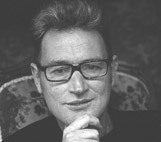I was sixteen when I saw my first gay kiss on TV.
1986 was my final year at school. There were many things going on in my life at that time that caused me pain. There was the on-going fallout from my parents divorce and an obstinate refusal to accept that their union was over. I was reeling from my experience of sexual abuse. I developed insomnia and for the first time ever at school I failed miserably with my end of year assessments. I was writing mournful poems about going crazy, about wanting to die, about how unhappy I was. But if there were any words within those poems that referred to my sexuality and the stress I suffered because of it, then they were shrouded, coded with a code only I or people like me would understand. And my understanding was that there really weren’t very many people like me.
At the same time, The Homosexual Law Reform Bill had not long been passed amidst huge opposition and hateful protests, and the new ‘gay’ disease AIDS, had arrived in New Zealand bringing with it new fears, anxieties and prejudices.
I remember the night it screened on TV – A Death in the Family - a film made for television about the final days of one of New Zealand’s first AIDS victims. It was terrifying, it was poignant, it was confronting, it was raw. In it, the dying character’s friends had gathered to stand vigil at his death bed. The kissing scene was between two of the friends.
Nothing like this had ever screened in New Zealand. I cringed during the scene. I wanted to cry as I contemplated meeting the same horrid fate as the poor AIDS victim. And without looking at my father who was also watching, I could feel his blood starting to boil, his indignation at having to bear witness to such a scene manifested with a sudden outburst.
‘That’s disgusting!' he said. 'There’s absolutely no need to put stuff like that on the TV!’
I felt so sorry. Sorry that my Dad found it so offensive. Sorry for him. Sorry for the dying man. But I felt something more akin to hate for myself for being ‘one of them’.
The film heralded in a new era of fear and paranoia about gay men. Homosexuals were still trying to rid themselves of the stereotypes – paedophiles, perverts and mentally corrupt deviants of the community. But now society was recoiling again with the latest development – homosexuals were deadly.
I remember the jokes that circulated the school yard – ‘Hey, Ivan. Do you know what gay stands for?’
I shrugged mostly, always afraid that the mere sound of my voice would confirm people’s suspicions.
‘It means Got Aids Yet? Hahahaha!!!’
New Zealand had some major growing pains to endure before society would come to accept gay people. As painful as it was to watch my first gay screen-kiss, and the sombre narrative that it sat amongst, this telefilm was brave bold and new and started a discussion amongst New Zealanders, and won awards as far afield as New York.
Peter Wells was ahead of his time, and now stands as one of New Zealands most successful gay writers. It is people like him who have paved the way for other gay writers like myself, and I am grateful for his courage.



